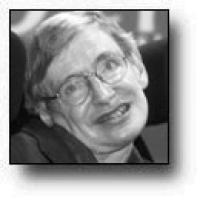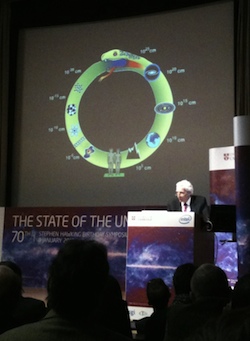
Happy 70th birthday Stephen Hawking!

Martin Rees explaining the interconnectedness of the microworld and cosmos
"Astronomers are used to large numbers, but few are as large as the odds I'd have given this celebration today," is how Astronomer Royal Martin Rees started his presentation at Stephen Hawking's birthday symposium yesterday. He was talking about the 1960s when he first met Hawking who was then already suffering motor neurone disease. But Rees' prediction has been proved wrong. Hawking turned 70 yesterday and since the time of their first meeting he has made enormous contributions to cosmology and physics.
It was definitely one of the most touching, funny and fascinating scientific events we've ever attended and we've tried to capture some of the atmosphere for you. So if you weren't one of the lucky few who managed to get hold of a ticket, listen to our podcast in which we talk to Martin Rees, some of Hawking's ex-students, his graduate assistant, as well as members of the audience.